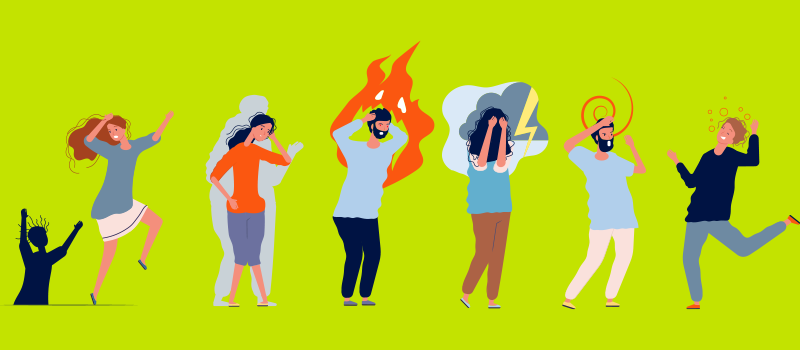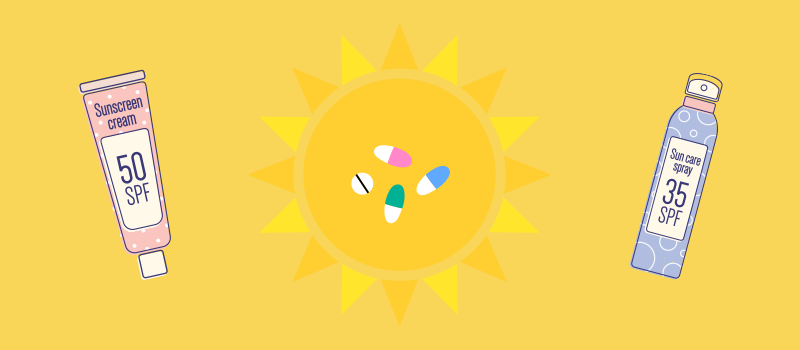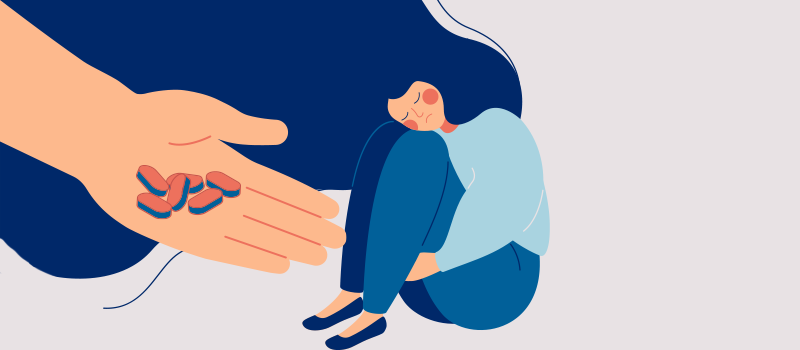What’s the Buzz
The Bee Healthy Blog
Montelukast (Singulair) and Mental Health Warnings

Montelukast (sold under the brand name Singulair and in generic form) is a medication used to prevent asthma attacks, thus reducing asthmatic symptoms such as breathing difficulty, wheezing, coughing, and chest tightness. Many health care professionals also prescribe montelukast to treat allergic rhinitis (hay fever), which can be seasonal or year-round; however, montelukast should only be used after other treatments have been tried and not proven effective.
In 2020, the U.S. Food and Drug Administration (FDA) issued a black box warning (the strongest type of FDA warning) about the potential risks of taking this medication.
Specifically, the black box warning indicates that the asthma and allergy drug montelukast (Singulair) can have severe neuropsychiatric effects. The FDA boxed warning was issued to strengthen existing warnings for montelukast users.
Please continue reading to learn more about some of the serious mental health side effects and psychiatric disorders that can occur after taking montelukast (Singulair).
What are the mental health side effects of Singulair?
Taking montelukast can lead to serious mental health side effects such as sleep problems, dream abnormalities, depression, agitation, or even suicidal thoughts and actions.
Given the increased risk of these reported neuropsychiatric events, the FDA boxed warning advises healthcare providers to avoid prescribing montelukast (Singulair) for mild symptoms, especially for mild allergic rhinitis, and to use alternative therapies instead.
Does Singulair affect your mood?
Singulair can cause changes in behavior as well as mood related changes, such as aggressive behavior, agitation, confusion, anxiety, hallucinations, vivid dreams, depression, disorientation, irritability, memory problems, obsessive-compulsive symptoms, restlessness, and suicidal thinking. In addition to the mental side effects, some people also experience uncontrolled muscle movements and tremors while on Singulair.
These serious neuropsychiatric events can make patients receiving montelukast appear unstable to their friends and loved ones. This serious behavior and mood change mimics mental illness symptoms. If someone experiences unusual changes in mood while on Singulair, they are possibly experiencing the adverse events associated with montelukast and should be evaluated by a health care professional without delay.
Can montelukast cause psychosis?
The allergy and asthma drug montelukast (Singulair), the oral granule dosage form, can be prescribed to children as young as 6 months old. Studies have shown that the main adverse effects in infants under the age of 2 years are sleep disturbances. In children between the ages of 2 and 11 years, the main mental health side effects of montelukast are depression and anxiety. In adolescents between the ages of 12 and 17 years, suicidal ideation, depression, and anxiety are the main mental health side effects of this asthma and allergy drug.
Generally speaking, neuropsychiatric events caused by montelukast are more frequently reported in children than adults. Infants and children seem to be most likely to suffer from sleep disorders, whereas adolescents and adults have a higher likelihood of suffering from neuropsychiatric events such as depression, anxiety, suicidal thoughts, and psychosis. However, there have been no reports of completed suicides related to Singulair use.
Can Singulair make depression worse?
Singulair should be reserved as the last treatment option for asthma, even for healthy patients with no history of a mental health disorder. If you or your loved ones start taking Singulair for the first time, keep in mind that the risk of serious mental health side effects is higher for patients with concomitant neuropsychiatric symptoms prior to starting montelukast. People with pre-existing mental health issues such as depression should discuss other effective allergy medicines with their medical professionals.
If you notice worsening depression or any other serious mental health side effects of montelukast in yourself or a family member, make sure you or your loved one is evaluated immediately by a health care professional.
Important Prescribing Information About the Allergy Drug Montelukast (Singulair) for Health Care Professionals and Patients
After extensive review and case reports, the FDA requires boxed warning for the asthma drug montelukast because it can cause serious mental health adverse events.
Given the warning about serious mental health side effects associated with taking montelukast, the U.S. Food and Drug Administration (FDA) advises restricting the use of this asthma and allergy drug. More specifically, healthcare providers should avoid prescribing Singulair to treat mild symptoms, especially those with allergic rhinitis.
The boxed warning about serious mental health effects means that healthcare providers and patients should be more cautious with the utilization of this commonly-prescribed medication. Keep in mind that mild allergy symptoms can usually be treated effectively and safely with other alternatives, both over-the-counter products or prescription medications.
Health care professionals can use their clinical judgment to continue their patients on montelukast (Singulair). In these instances, the FDA requires stronger warnings about the risk of neuropsychiatric events to be communicated thoroughly to the patients and their families. It is very important that patients and their loved ones are well-informed about these mental health side effects so that they can notify their doctors immediately or seek emergency medical attention if they observe any changes in mood or behavior, including thoughts of self-harm.
References:
- https://www.fda.gov/news-events/press-announcements/fda-requires-stronger-warning-about-risk-neuropsychiatric-events-associated-asthma-and-allergy?utm_campaign=030420_PR_FDA
- https://medlineplus.gov/druginfo/meds/a600014.html
- https://pubmed.ncbi.nlm.nih.gov/26620206/#
- https://pubmed.ncbi.nlm.nih.gov/19815114/











SOCIAL